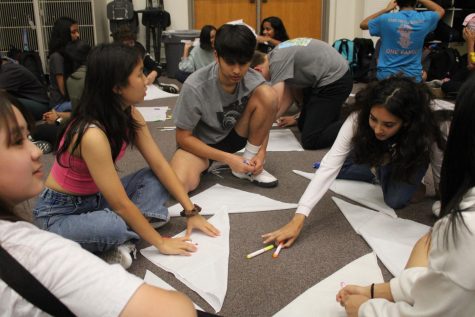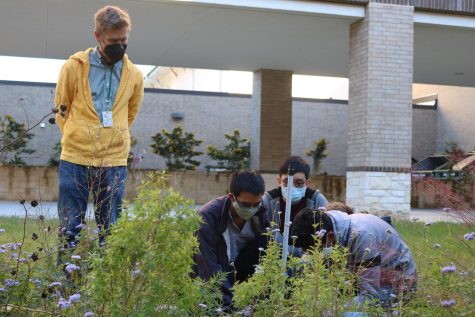How the Yearbook Staff Maintained Quality During the Quarantine
For many years, the RRHS Dragon yearbook has been an example to other schools on how to put together a better yearbook. The award-winning publication is perennially rated as one of the nation’s best by the National Scholastic Press Association. However, all of this success doesn’t come easily. It is the product of a year-long time crunch by more than 50 students. Hitting deadlines is imperative to the completion of the yearbook, and no deadline is more important than the final one. Almost 1500 yearbooks are pre-purchased throughout the year, making sure those orders are filled depends on the yearbook being finished on time. This creates a deadline so strict, not even a global pandemic can move it.
On March 16, Round Rock ISD announced that spring break would be extended an extra two weeks, pushing past the yearbook’s final deadline.
“When I first heard that spring break was getting extended I actually started crying,” senior editor Heather Miller said. “My first thought, to be honest, was that I wasn’t going to finish this book that I’d been working on since last summer.”
Fortunately, a small group of yearbook staff were willing to spend the second week of spring break working on the book.
Putting together the yearbook is a wholly team effort. It’s hard enough to coordinate when everyone is in the same room together, being forced to work remotely provides a host of new challenges.
“The hardest part for me was the fact that I wasn’t able to see the proofs of the photos I was editing,” photo editor Katelynn Ivy said. “Normally when pages are in final edits we receive copies of how everything looks on paper so we can make any needed adjustments, but for these final pages I had to go by the coloring of the screen on my old laptop.”
The digital limitations proved to be an issue in more than one way.
“The program we were using only allowed one person to be on a spread at a time so that could be difficult,” Miller said. “I had my moments of breaking down because I wanted to help as much as possible but, since we had to communicate through text, it was hard to always be on the same page.”
The added difficulty of working remotely and doing so with a smaller staff was successfully overcome by the editors. The books are set to arrive on campus in late May, which is later than normal despite the staff meeting their deadline. This is because the yearbook manufacturer had to close down one of their two plants, forcing their remaining plant to absorb the extra work. While the staff currently tries to figure out the safest and most efficient way to distribute the books, the seemingly never-ending time-crunch is finally over.
“I am so proud of this book,” Miller said, “and our ability to produce something so special during these uncertain times.”

Hello!
I'm Joe, the Design Editor for the Round Rock Spitfire. My first time delving into journalism was as a part of the Yearbook staff at Walsh Middle...










